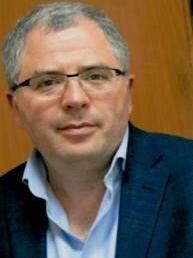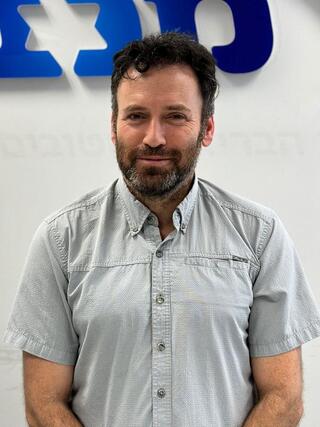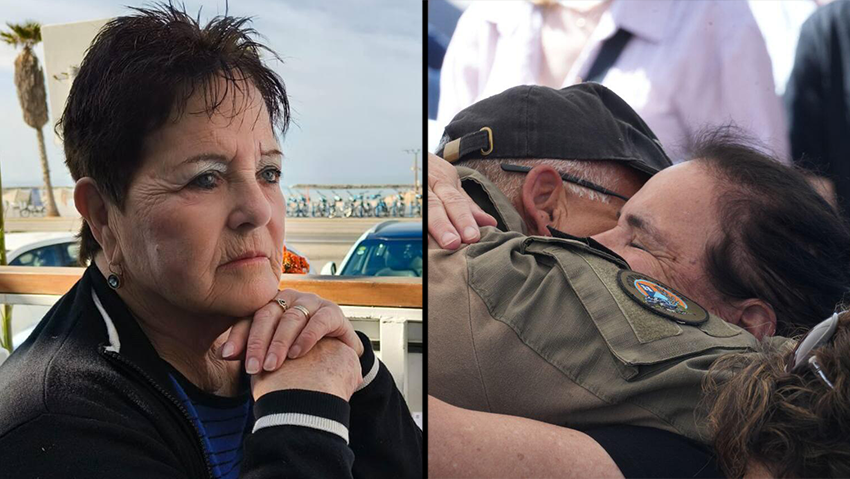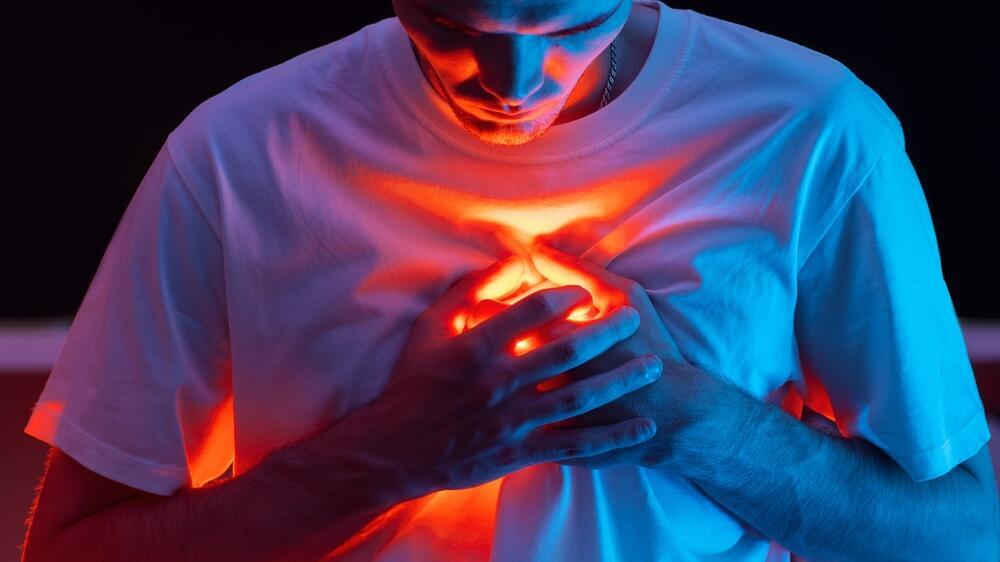The death of Tamar Kotz—who lost her son, daughter-in-law and three grandchildren in the October 7 massacre—has reopened public discussion about the profound connection between mental anguish and physical health and the devastating toll extreme emotional trauma can take on the body.
Kotz, 82, a longtime member of Kibbutz Kfar Aza, was laid to rest on Tuesday. A year and a half earlier, her son Aviv, his wife Livnat and their children Rotem, Yonatan and Yiftach were all murdered together as they huddled in their home's reinforced safe room.
“Since the massacre, she suffered from heartbreak and inconsolable grief,” said her relative, Prof. Rachel Elior. Members of the kibbutz said she had been unable to function. “Her body survived but her soul gave out.”
‘A decline in heart function’
Kotz’s death has drawn attention to a documented medical phenomenon known as “broken heart syndrome,” or Takotsubo cardiomyopathy—a temporary heart condition triggered by acute emotional stress. Though its symptoms mimic a heart attack, it typically occurs without arterial blockages.
“Takotsubo cardiomyopathy is a temporary dysfunction of the heart muscle brought on by severe emotional distress,” said Dr. Daniel Koukoui, an Israeli cardiology expert. “It’s named after a Japanese octopus trap due to the heart’s similar shape during the episode.”
 Dr. Daniel KoukouiPhoto: Courtesy
Dr. Daniel KoukouiPhoto: CourtesyAccording to Koukoui, intense psychological trauma activates the body’s ancient “fight or flight” stress response, flooding the system with hormones like adrenaline, cortisol and noradrenaline.
“In extreme or prolonged doses, these hormones can damage the heart muscle directly, often leading to reduced function in the heart’s apex and, in severe cases, cardiac shock.”
A similar case raised public awareness recently: Liel Buchris, the sister of Maj. Chen Buchris who was killed in combat on October 7, died shortly after. “Her soul ached more than her body. She died of sorrow, of a broken heart,” said her sister, Masada. Though the official cause of death may differ, the connection between physical and emotional loss is hard to ignore.
Get the Ynetnews app on your smartphone: Google Play: https://bit.ly/4eJ37pE | Apple App Store: https://bit.ly/3ZL7iNv
When mourning breaks the body
The syndrome's symptoms are almost identical to a heart attack: chest pain, shortness of breath, sweating, rapid heartbeat, anxiety and even fainting. “Patients often believe they’re having a heart attack and are rushed to the cath lab—only to find no arterial blockage,” said Dr. Koukoui. Diagnosis typically includes coronary angiography, followed by echocardiography, blood tests for cardiac enzymes and sometimes cardiac MRI.
While the condition is more common in women over 50, it can also affect men and younger individuals. “Triggers can include major loss, divorce or even surprisingly positive shocks like weddings or winning an award,” Koukoui said.
In Kotz’s case, the sudden loss of five close family members likely created a level of grief the body couldn’t bear. “We’re living October 7 every day,” said Ziv Levy, brother of the late Livnat Kotz, in an interview with Ynet.
“Five entire worlds disappeared in a single moment. They were found embraced together in the safe room, with Aviv shielding them with his body.” Despite the family’s commemorative efforts—such as renovating the sports hall where Yonatan and Yiftach used to play—Tamar was never able to recover.
History full of broken hearts
“Tamar Kotz wasn’t an isolated case,” said Dr. Shahar Robinson, head of mental health services for Maccabi Healthcare’s southern district. “History is full of examples of people who passed away shortly after losing a loved one—not just from grief, but likely from physical repercussions of that grief.”
He pointed to musician Johnny Cash, who died four months after his wife June Carter, with family saying he was “broken from sorrow.” Actress Debbie Reynolds died a day after her daughter, Carrie Fisher, with her son saying, “She wanted to be with her, so she left.”
 Dr. Shahar RobinsonPhoto: Maccabi Healthcare
Dr. Shahar RobinsonPhoto: Maccabi HealthcareEven Priscilla Presley spoke about her daughter, Lisa Marie Presley, who experienced heart issues following the 2020 suicide of her son Benjamin Keough. Lisa Marie, previously healthy, died of cardiac arrest in 2023, less than three years after her son’s death.
Not every case of intense mourning results in broken heart syndrome, Robinson stressed, “but for more sensitive individuals or those without a strong support network, emotional pain can absolutely trigger serious physical effects.”
Treatment and coping
Dr. Koukoui said treatment typically involves rest, medications to reduce blood pressure and stabilize heart rhythm and sometimes diuretics. “There’s no specific drug for the syndrome—it’s mostly about supporting the heart until it returns to normal function. Most patients recover within a few weeks but it’s essential to remain under medical supervision and address the emotional side as well.”
Dr. Robinson stressed that psychological care after severe loss must be multi-layered: psychotherapy, psychiatric support (even if medications are just for symptom relief) and long-term social support. “The goal isn’t to eliminate the pain,” he said. “It’s to make sure the grieving person isn’t holding it alone.”






